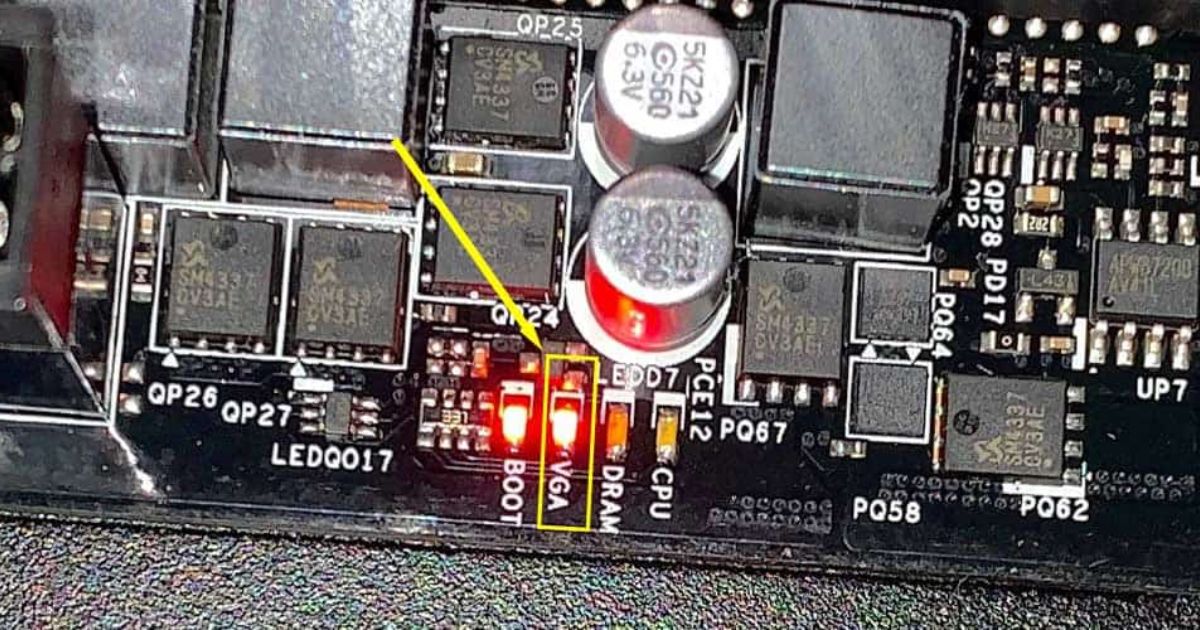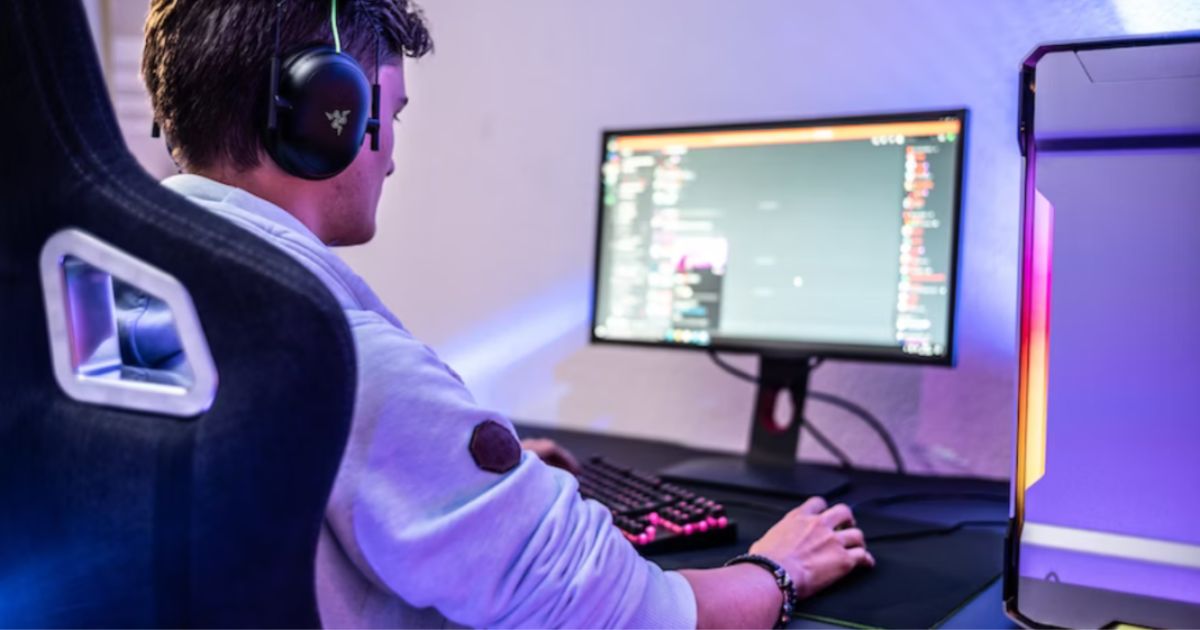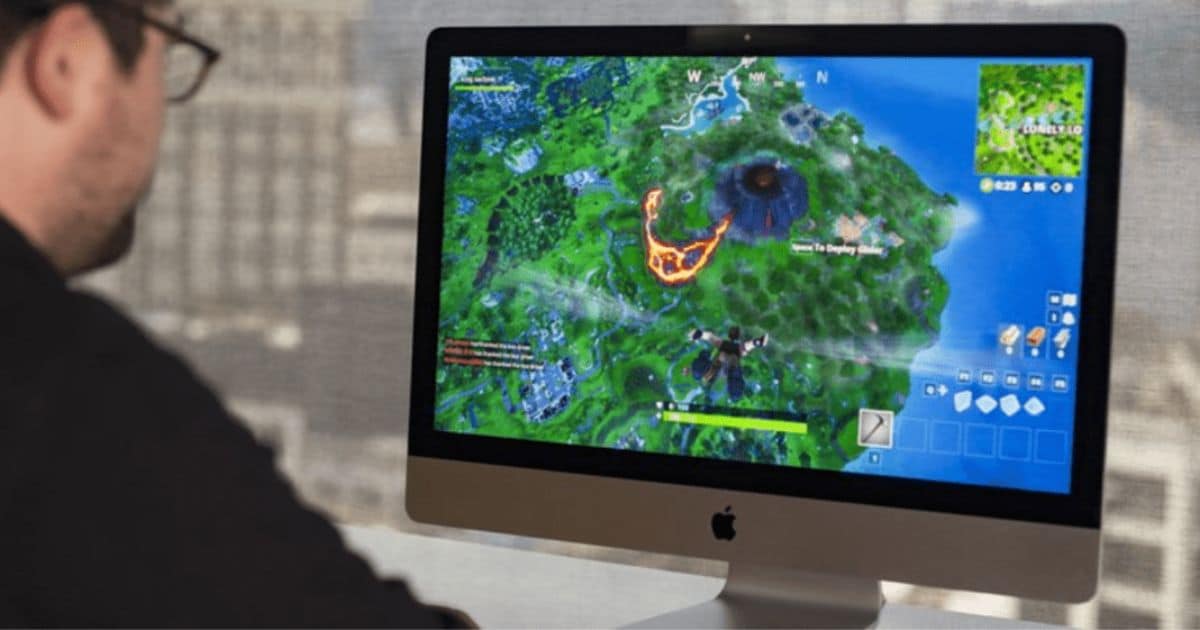A gaming PC is a high-performance computer that can run graphics-intensive games. It requires high-quality hardware components, including a powerful processor, graphics card, and memory. Offer a seamless gaming experience that needs high-quality equipment. Yet, the storage capacity of a gaming PC is also a crucial factor that affects its performance. The storage drive must be fast and reliable. It must also have enough space to store game files, the operating system, and other software.
Do you want to take your gaming to the next level? How much storage should a gaming pc have? With the right amount of storage, you can do just that! Learn how much storage your gaming PC should have to maximize your gaming experience. This article will discuss how much storage a gaming PC should have and what factors to consider while choosing the storage drive.
Imagine you are playing your favorite game. You get notified that your storage drive is whole, and you must delete some files to make space. Losing your progress or favorite files can be frustrating due to insufficient storage. So, choose the right storage drive for your gaming PC to avoid such situations.
The Storage of Gaming PC
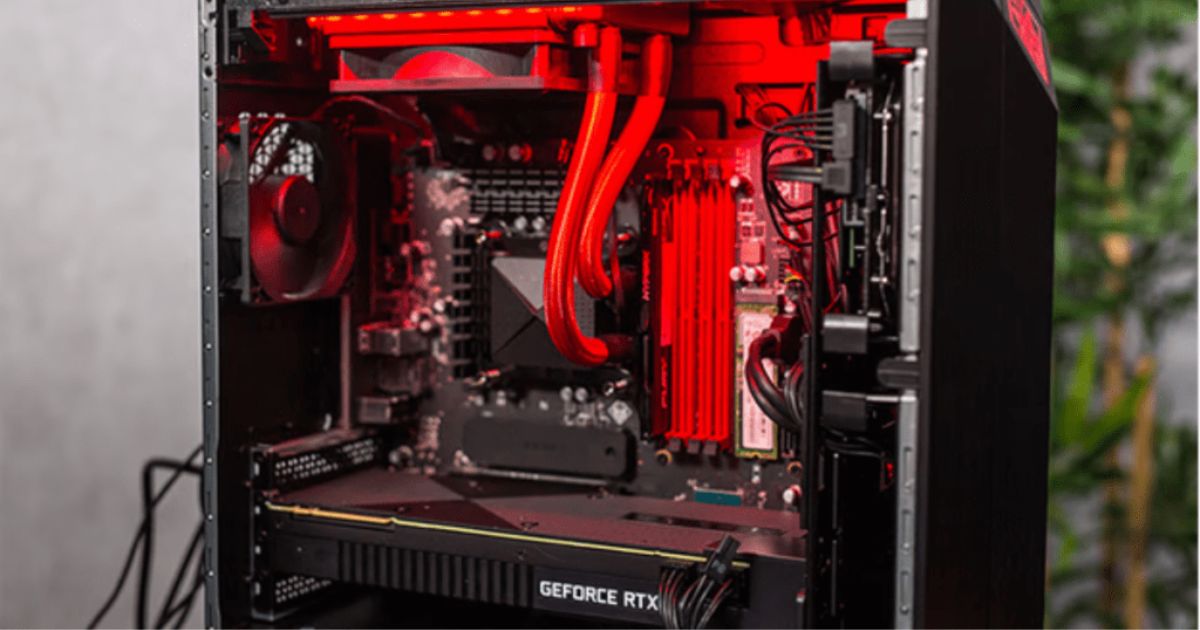
The storage capacity of a gaming PC depends on your requirements, budget, and future needs. Generally, the larger the storage drive, the more games, and files you can store. Yet, a bigger storage drive doesn’t mean better performance. You also need to observe the type of storage drive and its speed. There are two different types of storage drives: hard disk drives (HDD) and solid-state drives (SSD).
HDDs are the traditional storage drives that use spinning disks to store data. They are less expensive and offer more storage capacity than SSDs. Yet, they are slower in read and write speeds, affecting gaming performance. But SSDs are faster and more reliable than HDDs. They use flash memory to hold data, which allows them to access the files. Yet, SSDs are expensive and offer less storage capacity than HDDs.
So, while choosing the storage drive for your gaming PC, you must consider the balance between storage capacity and speed. A gaming PC should have both an SSD and an HDD. You can use the SSD as a primary drive to install the operating system used, software, and games. The SSD will improve the boot and load times and make your system more responsive. You can use the HDD as a secondary drive to store large files, such as videos, music, and less-used software.
How much storage should a gaming PC have?
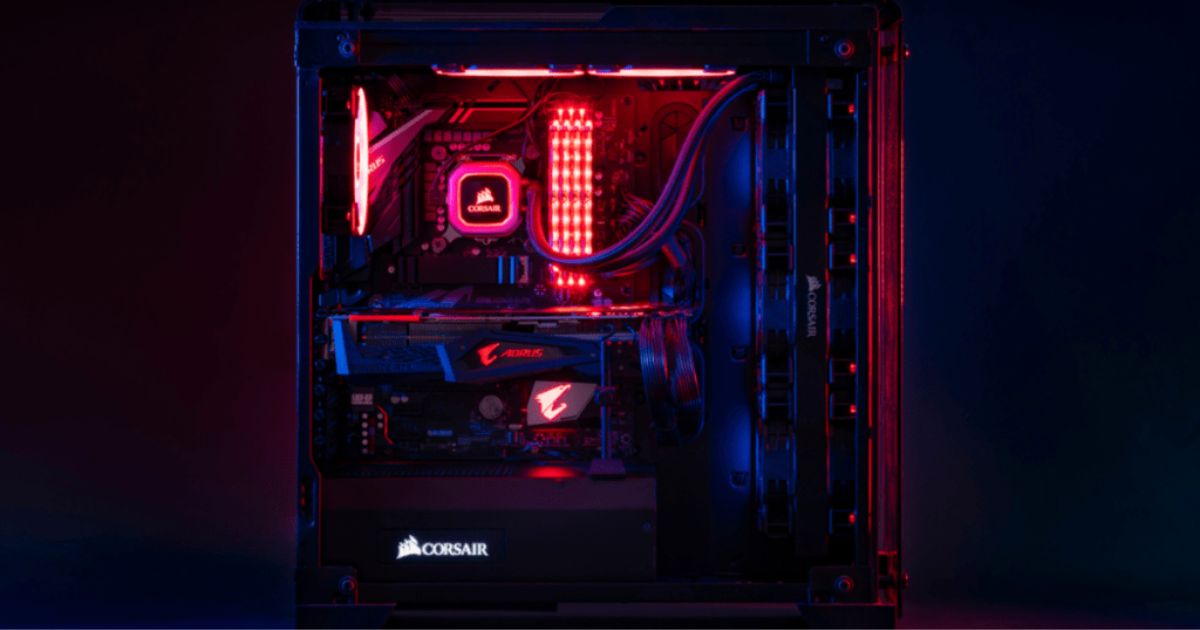
The answer to this question relies on your gaming needs and preferences. If you are a casual gamer who plays a few games and doesn’t store many files, a 500GB SSD or a 1TB HDD can suffice. You may need a larger storage drive if you are a hardcore gamer who plays many games and wants to store many files.
For example, modern AAA games can take up to 50GB or more storage space. If you play such games, you may need a 1TB SSD or a 2TB HDD. You may need a larger SSD if you are a content creator or a professional gamer. High-speed data transfer and multitasking require this. A 2TB or 4TB SSD can offer fast read and write speeds and ample storage space for your files.
Factors to consider while choosing the storage drive for a gaming PC
Storage capacity is essential, but there are other factors to consider. Choose the right drive for your gaming PC.
Speed:
As mentioned earlier, the speed of the storage drive is crucial for gaming performance. A faster storage drive will load the games faster, reduce the loading times, and improve the system’s responsiveness. So, choose an SSD with a high read and write speed, an NVMe SSD.
NVMe (Non-Volatile Memory Express) is a newer interface for SSDs that use the PCIe bus for faster data transfer rates. NVMe SSDs can offer read and write speeds of up to 7000 MB/s, much faster than the traditional SATA SSDs.
Type of game:
The game you play also affects the storage need. Some games need faster storage drives. It reduces loading times and improves the gameplay. But, some games, such as strategy and simulation games, may not need high-speed storage drives. So, consider the type of game you play and its storage need while choosing the industry.
Budget:
The cost of the storage drive is also an essential factor to consider. SSDs are more expensive than HDDs but offer faster speeds and reliability. Thus, consider your budget and choose the best value for a money storage drive.
Future needs:
Consider your needs while choosing the storage drive. If you plan to upgrade your system or play more games in the future, you may need a larger storage drive. Thus, choosing a storage drive with room for future upgrades is better.
Advantages of having the right storage drive for a gaming PC
Having the right storage drive for your gaming PC can offer several benefits, such as:
· Faster loading times: A faster storage drive can reduce the loading times of the games and make the gameplay smoother. You can load the levels and maps and start playing without waiting for the game to load.
· Improved system responsiveness: A faster storage drive can improve system responsiveness. You can launch the applications, open the files, and switch between the tasks without lag.
· Better multitasking: You can multitask without performance issues. A faster and more extensive storage drive helps. You can run many applications and games without affecting the gaming performance.
· More storage capacity: A more extensive drive can offer more storage space for your files and games. You can store more games, videos, music, and other files without worrying about running out of reach.
FAQ’s
How much storage should a gaming pc have?
Depending on your gaming needs, a gaming PC should have at least 500GB of storage.
How much storage do I need for AAA games?
AAA games can range from 50GB to 100GB in size, so you may need at least 1TB of storage to store several of them.
Is an NVMe SSD better than a SATA SSD for gaming?
Yes, an NVMe SSD is faster than a SATA SSD and can offer shorter loading times and better gaming performance.
How much storage do I need for streaming games?
If you plan to stream games, you may need at least 2TB of storage to store your game files and streaming software.
Should I get a solid-state drive or a hard disk drive?
It depends on your budget and needs. SSDs offer faster speeds and reliability but are more expensive than HDDs.
Can I use external storage for gaming?
Yes, you can use external storage for gaming, but it may offer a different speed and performance than an internal drive.
Conclusion
In conclusion, how much storage should a gaming pc have? The storage drive is an essential component of a gaming PC that affects its performance and storage capacity. When choosing the storage drive for your gaming PC, consider the balance between storage capacity and speed.
It would help if you used an SSD as a primary drive to install the operating system and operate software and games. Use an HDD as a secondary drive to store large files. The amount of storage you need depends on your gaming needs, budget, and future requirements.
A larger and faster storage drive can offer several advantages. Shorter loading times, improved system responsiveness, better multitasking, and more storage capacity are a few examples. Thus, choose the right storage drive for your gaming PC to enjoy a seamless gaming experience.

Brook over 3 years of professional gaming, esports coaching, and gaming hardware reviews to provide insightful expertise across PC, console, and mobile gaming.
